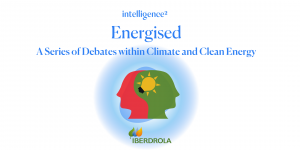
Transport emissions account for almost a third of global carbon dioxide emissions – and while other sectors such as the energy industry have reduced their emissions over the past three decades, transport emissions are growing. It is the EU’s second most polluting sector and the United Kingdom’s biggest single producer of carbon dioxide, with cars and vans making up the vast majority of these emissions. If we are to meet our net zero targets by 2050, as over 130 countries have committed to do, then something needs to be done about these gas-guzzling monsters.
Enter electric vehicles. Right now they make up a minority of vehicles on the road but by 2030 cars and vans powered by fossil fuels will be banned, and five years after that so will hybrid vehicles. Electric cars are far more energy efficient, and are quieter and cheaper than cars that run on fossil fuels. So surely we should all encourage drivers to purchase electric vehicles and quickly render other vehicles obsolete.
But hold on a second, some experts caution: electric vehicles are not a cure-all for our environmental problems, they say. Emissions from EV production are in fact on average higher than emissions produced during the traditional car manufacturing process, due to the production of the large lithium-ion batteries needed to power EVs. Furthermore, electric vehicles are only as green as the power used to charge their batteries. Renewables are a growing source of energy in the UK but we are still burning coal and gas to make most of our electricity.
Should we be focusing on hydrogen fuel cells instead of electricity? Producing them causes less environmental damage than the production of lithium batteries. They provide a quicker charging time – and hydrogen is the most abundant element in the universe. Or is improving cars the wrong solution to an enormous problem? Should we be encouraging people to get rid of their cars and use public transport?
We were joined by Iberdrola’s Head of New Initiatives, Innovation & Sustainability Division Enrique Meroño and award-winning transport expert Christian Wolmar to debate whether electric vehicles will solve our transport and emissions problems or whether they are simply a false start in the journey towards green roads.